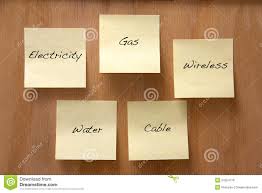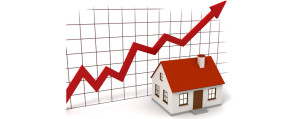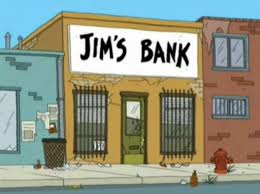Welcome to Calgary Real Estate First Time Home Buyer Calgary.com ! This site will provide you all the tools needed to find your new First Dream Home in Calgary AB. Search the listings and read the media articles. When you are ready to start viewing homes Please Contact Glen! We would love to help you…
Click to View all FIRST TIME HOME BUYER – HOUSES
____________________________________________________________
Click to View all FIRST TIME HOME BUYER – TOWNHOUSE CONDOS
____________________________________________________________
Click to View all FIRST TIME HOME BUYER – APARTMENT CONDOS
____________________________________________________________
Real Estate Tips
10 tips for Calgary Real Estate First Time Home Buyers
1. Start by finding a realtor. Look in the phone book or online or ask friends or Contact Glen. Ask realtors for references, experience and success rates, and be sure you feel comfortable with the agent. Your realtor should be well-informed about every aspect of where you’re looking for a home, such as the attributes of neighbourhoods, schools and community groups, and have experience negotiating deals in your price range.
2. Apply for a preapproved mortgage, which is usually good for 90 days. This will set your maximum mortgage amount and interest rates, so you can set your budget before house hunting. It also lets the seller know you are serious about buying a home.
3. Budget for extra expenses, such as moving, new appliances and utility hookups. Moving costs vary, but the average is about $500. Utility service charges for electricity and phone will total about $150 to $250. Add appraisal fees, title insurance and survey costs to your budget as well.
4. Prepare for closing fees. We recommends you put four per cent of the price of the house aside for closing costs,such as lawyers, etc..
5. Consider using any current federal government’s Home Buyers’ Plan for first-time buyers to increase your down payment. It allows you to take $20,000 out of your RRSP tax-free and gives you 15 years to pay it back, if you are Calgary Real Estate First Time Home Buyer or not.
6. Buy the home you can afford. “You can’t enjoy life if every cent you make is going toward paying for your first home”. While five per cent is the minimum down payment, putting more down reduces your costs. A small down payment leaves almost no equity in your home; if it’s less than 20 per cent, mortgage loan insurance is often required, which leads to additional costs and higher interest rates.
7. Avoid hidden costs – and headaches – with a home inspection. It’s worth the approximately $350 (though costs vary depending on house size) to get the house checked out before you make the commitment. Your real estate agent will advise you on how to make your offer conditional on the inspection. Find an inspector through an industry trade group, such as the Canadian Association of Home and Property Inspectors (www.cahpi.ca). Ask glen and our team , we have great home inspectors that we can reccomend
8. Make an offer only if you’re serious. Wait to make an offer until you’ve seen several houses, and it should reflect current market conditions. Other factors to consider are the seller’s needs, such as the closing date, and your budget.
9. Keep your emotions in check when negotiating because they can lead to impulse buying. Be prepared to walk away if a bidding war drives the house out of your price range.
10. Pay for furniture now, not later. Deferred payment plans at furniture stores are helpful only if you pay the bills before they come due. “If you don’t have the money to buy furniture, don’t buy it. Live without it or buy used furniture until you can save up.”
Worst mistakes first-time home buyers make
A house is one of the biggest investments you may ever make, so it’s important to plan ahead, to think about what you need in a home and what you can afford.
Getting pre-approved for a mortgage is a great way to budget for a home and signal that you’re a serious buyer. However, keep in mind that the amount for which you are approved is the maximum amount the lender feels you can afford based on your income and projected property expenses. That figure doesn’t account for other expenses you may face, such as renovations or emergency home repair, as well as regular household costs for Calgary Real Estate.
“You know best … what your costs are, so our advice would be look at what your paycheque is net, line up all those costs, including what you’re being told on the calculator is affordable for you, and see what is left at the end of the month. “The last thing you want to do is hang yourself out to dry with your mortgage payments that are simply too high to carry.”
Here are some other mistakes first-time buyers make, and how to avoid them:
Not knowing your credit score
A credit rating is a record of your credit history and current financial situation. A good credit rating can improve your ability to get loans, so if your score is low, you may want to work on improving it before you apply for a mortgage.
Not budgeting for the costs of home ownership
Being a homeowner brings new expenses, including property taxes, higher insurance costs, regular upkeep and an emergency fund for repairs. Don’t forget to factor in the cost of any renovations your new home may need.
Not researching down payment choices
Lenders typically require CMHC mortgage loan insurance if you make a down payment of less than 20 per cent, and premiums for that insurance can be as high as 3.25 per cent of the value of the loan. Under the Home Buyers’ Plan, first-time buyers can use up to $25,000 in RRSP savings ($50,000 for a couple) for a down payment. A higher down payment will save thousands of dollars in interest over the life of your mortgage.
Focusing too much on interest rates
First-time home buyers rush in to the market when interest rates are low. While rates are important, other things have a greater bearing on the overall cost of home ownership, including the cost of the house, the type of mortgage, the amortization period and payment options.
Not choosing your own payment schedule
Paying off your mortgage sooner saves you interest costs, while a longer amortization period reduces your regular payment and frees up cash flow. You can save thousands of dollars in interest by choosing a shorter amortization period, paying fortnightly instead of monthly, or increasing the amount of payments by even a small amount. Use an online mortgage calculator to run the numbers.
Forgetting about closing costs
When calculating closing costs, assume you will need an additional 1.5 to 2.5 per cent of the purchase price to cover such things as the home inspection, legal fees, land transfer tax, property tax, property insurance, utility hook-ups and moving costs, are the typical costs when purchasing Calgary Real Estate




